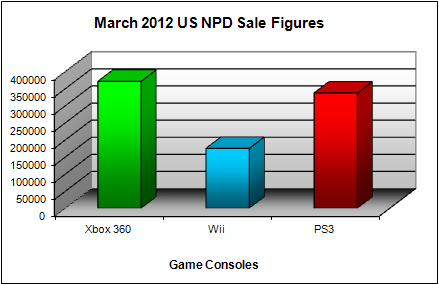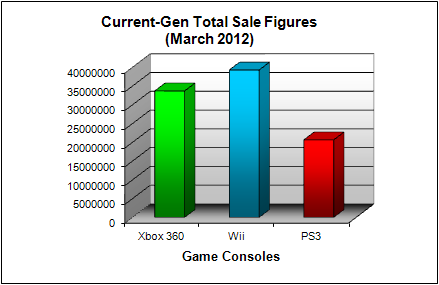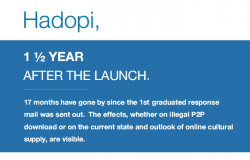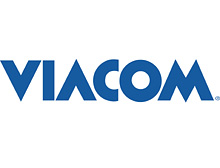Going to be a short one this week I think, mainly due to the lack of news. I really did try hard to find interesting stuff for you this week, but after the 10th “Tor goes DRM free” story, I gave up. Spent the week playing around with my new 60″ Samsung TV, really like it so far. I’m currently “breaking-in” the plasma TV, something that I’m sure is 90% myth. During the break-in period, it is suggested that you turn the brightness/contrast/cell light to something low, while avoiding black bars or any image that uses the pixels in an uneven way – all for the first 100 hours. This is supposed to reduce the chance of burn-in and reduce image retention (the temporary kind). I never did this with my first plasma, a Pioneer 4th gen purchased (for ridiculous money) back in 2004, and it’s still going fine in regards to the aforementioned, and while I did it with my 58″, and the temporary IR was still above more than normal on that set. Ask HT enthusiasts and they’ll tell you that you have to do it. Ask the manufacturers, and none of them tell you it’s necessary. But I’m still inclined to do it – better safe than sorry I suppose.

As stated earlier, not a lot of interesting news this week. All of the ones I did find were copyright related, so I think we can get this done quite quickly if we put our heads down and power through.

German court says YouTube's oversensitive Content ID still isn't good enough of an anti-piracy measure
We start in Germany this week, where a regional court has accused YouTube of not doing enough to combat piracy, despite the use of Content ID (automatic content scanning) and a well implemented take-down regime. Instead, it wants YouTube to add in things like word filters and to be even more proactive in stopping piracy. I’m sure subsequent appeals will change the ruling once again, but this latest ruling seems excessive to me. Content ID is already well known for giving lots of false positives, and I can’t see how adding a word filter on the video’s title, which will be so easy to circumvent by real pirates, will do anything other than increase the rate of false positives (so “community bulletin” gets filtered because of the TV show, “Community”, for example). It just seems to me that this is a ruling from a judge that’s not clued in to how YouTube actually works, and what kind of role the website now plays in terms of content promotion (a lot of content holders actually hope people upload unauthorised clips, for promotional purposes).
With relatively little fanfare, the US House of Representatives passed the CISPA cybersecurity data sharing bill last week by an overwhelming majority, 248 to 168. With so much attention having been garnered for SOPA (and PIPA), it may be surprising that the so called “Son of SOPA” passed so easily. There may be some good reasons for this though. First of all, I’m not quite sure CISPA can even be called the “son of SOPA” (at best, it’s a nephew). CISPA is aimed, not at copyright infringement, but at cybersecurity threats, such as hacking. And while SOPA allows the government to take specific action, CISPA is more about data sharing between ISPs and government agencies. And I also think that people may be suffering from post SOPA-fatigue and so have been less willing to make big noises about CISPA. And most importantly, unlike SOPA, CISPA has the support of major tech companies such as Facebook and Microsoft, and this made an organized opposition difficult.
None of this is to say that CISPA shouldn’t be opposed, because it’s appears to be yet another one of those “short-cuts” in due process that I talked about last week. The justification is that because something happens so frequently, like web piracy, that somehow the law no longer really applies. So instead of needing a warrant to force ISPs to hand over data about a suspect, CISPA does away with this and many other requirements, and that has serious implications to privacy and due process. Which is probably why its passing through the senate is far from being certain, and the threat of a presidential veto still remains (despite last minutes changes to the bill).

Publishers Tor and Forge will now only sell DRM-free e-books - could this be the beginning of the end for e-book DRM?
Some positive development in the e-book world. Last week, I highlighted the evilness of DRM for the e-book industry, in that it’s now being used more for market protection and anti-competitive behaviour than as a means to stop piracy. And that while publishers are being suckered in to supporting and even specifically requesting DRM to be present, even though in the long run, the anti-competitive nature of it means they’ll be the ones that ultimately loses out. So it was interesting this week to hear that major Sci-Fi publisher, Tor, a subsidiary of Macmillan, have decided to ditch DRM for all of their e-books. Books from Tor, and related brand Forge, will now only be available in DRM-free form. The publisher puts the decision down to demand from consumers, as well as authors.
In the long run, going DRM free should allow Tor’s e-books to be sold by more online distributors, including the smaller players, and this should help avoid a situation where Amazon has a virtual monopoly on the e-book market, where they’re free to use their market power to force publishers (and authors) to accept less and less money. It’s a step in the right direction, and hopefully it will start the DRM-free revolution for e-books, following in the footsteps of the music business. Now, we just need the same thing to happen with games and movies! But I suspect Hollywood will be the last bastion of the pro-DRM movement, and they’ll attempt to hold out for far longer than what is necessarily a healthy decision for the industry.
So how can you avoid getting sued or even arrested, despite making and sending 200,000 pirated DVDs over an eight year period? Easy, just make sure you’re a 92-year-old war veteran, and you’re only sending discs to support troops fighting overseas. I don’t know what’s more impressive, that a 92-year-old (84 when he started) not only learned how to copy DVDs (that DVD DRM really isn’t working, is it?), with up to 200 discs being produced a day at the peak of his operation, or that he’s avoided legal scrutiny all this time. Fearing from the bad publicity of going after a 92-year-old war veteran with the noble goal of supporting the troops, even the MPAA could only come up with a meek statement about being “grateful” that their products “can bring some enjoyment” to troops fighting overseas (that’s not what they were saying in declassified documents though).
So I guess not all piracy is bad, right MPAA?
And that’s all we have this week. Short and sweet. And at least 50% of that last statement was factual. See you next week.













